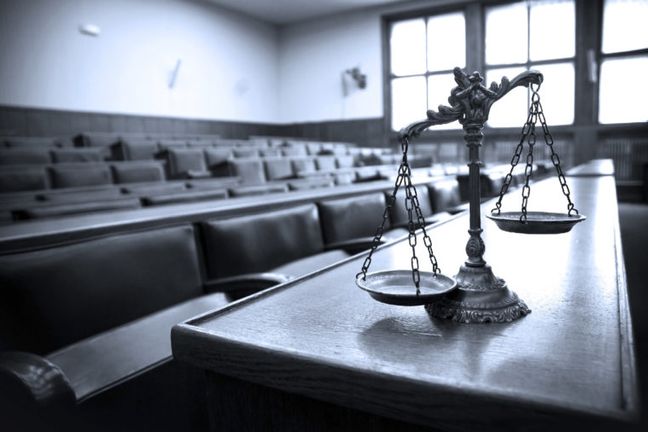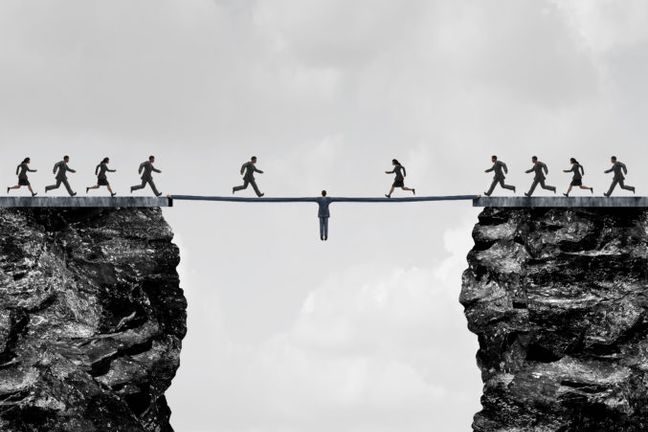In a 4-3 decision, the Florida Supreme Court settled the ongoing uncertainty regarding the Frye vs. Daubert expert evidence standard. The Court determined a 2013 legislative revision to the Florida Evidence Code was unconstitutional and infringed on the Court’s rule-making authority. The result is a clear statement of the so-called Frye standard as the governing analysis for admissibility.
Comparing the Frye and Daubert Standards
Historically, Frye had been the clear standard for determining admissibility of expert testimony in Florida and federal courts for decades. Originating from Frye v. United States[1], under the Frye standard, in order to introduce expert testimony deduced from a scientific principle or discovery, the principle or discovery must be sufficiently established to have gained general acceptance in the particular field in which it belongs.[2] Of importance, the Frye standard applied only to “new or novel scientific evidence,”[3] and in those instances it extended to the expert’s methodology and scientific principles, but not the expert’s reasoning or conclusions. Also, the Frye standard does not prohibit an expert’s pure opinion testimony based solely on the expert’s training and experience.[4]
In 2013, the Florida Legislature, in an attempt to place Florida in line with the federal court system and 41 other states, amended the Florida Evidence Code. The amendment adopted the so-called Daubert standard in place of the Frye standard when it comes to determining the reliability of expert witness testimony before allowing it to be admitted into evidence. Under Daubert, instead of determining whether the basis for an expert’s opinion was generally accepted in the relevant scientific community, it was the trial court’s job to evaluate the proposed expert evidence to be produced and to “ensure that any and all scientific testimony or evidence admitted is not only relevant, but reliable.”[5]
In the legal community, each standard has had its proponents and detractors. With Frye, those in favor see the benefit in keeping the scientific community, as opposed to the Court, as gatekeeper in determining the admissibility of evidence. Under Frye, if the scientific community finds a method or theory acceptable, the court must admit the evidence. Detractors argue the Frye standard involves less scrutiny, encourages forum shopping, and results in a more litigious legal landscape.
Those in favor of the Daubert standard believe the requirement of a trial judge to ensure the relevance and reliability of scientific testimony or evidence will keep “junk” science and non-verifiable and scientifically unreliable opinions out of the courtroom. Those who oppose the Daubert standard believe it has the potential to infringe on litigants’ constitutional rights to access the courts, adversely affect a jury’s role in evaluating the merits of the case, and results in time-consuming and potentially cost-prohibitive expenses created by pre-trial hearings.
The Significance of Delisle v. Crane Co.
In 2017, the Florida Supreme Court declined to adopt the 2013 legislative changes to the evidence code “to the extent that they are procedural,”[6] but declined to address the ultimate question of whether the legislature’s attempt to transition Florida from Frye to Daubert substantive rather than a procedural change. Their reasoning was based in part on the “grave constitutional concerns” [about the Daubert standard], “which must be left for a proper case or controversy.”[7] Delisle v. Crane Co. et al[8] provided the Court with that proper case or controversy.
The Delisle case involved a personal injury action filed by Mr. Delisle against sixteen defendants, claiming that the products of each caused him to be exposed to asbestos. Mr. Delisle only proceeded against three of the Defendants, and at trial the question of causation was hotly contested by all parties involved. To support his position on causation, Mr. Delisle presented expert testimony as to that issue. The Defendants challenged each expert’s opinions under the amended version of Florida Statute Section 90.702, which adopted the Daubert test for expert testimony, but their challenges were denied and the trial court admitted each expert’s testimony. The Fourth District Court of Appeals reviewed the admission of the expert testimony under Daubert, and found the trial court “failed to properly exercise its gatekeeping function” as to some of the doctors, and reversed and remanded the case.
With the Florida Supreme Court’s holding in Delisle, the majority clearly and unequivocally reaffirmed that Frye, not Daubert, is the appropriate test in Florida courts.[9] While the small picture effect for Mr. Delisle was the reinstatement of his judgment against the defendants, for all current and future litigants in Florida’s state courts, this opinion means much more.
Not only are expert witnesses integral in many cases, but their testimony and statements are often required in order for parties to even file certain types of complaints, such as medical malpractice suits. The affirmation of the Frye standard by the Florida Supreme Court in Delisle has settled the question regarding what standard Florida state courts must apply when determining the admissibility of expert testimony. What ultimate result this may have on any one case is not something which can be predicted, but in general this may result in judges being more lenient and allowing experts who would not be admitted under Daubert to testify.
Looking Forward
This has both advantages and disadvantages for lawyers and their clients going forward. On the one hand, a litigant’s experts are more likely to be admitted, but the same will also be true for their opponents. If your expert is admitted but not well-respected, has a problematic reputation, or assets a theory that either lacks corroboration or is rejected by most specialists in a particular field his or her potential lack of credibility could be exposed in front of a jury to the detriment of your client. In the end, while the Court’s opinion may result in more expert testimony being admitted, the holding does nothing to change the continued importance of counsel’s selection of qualified and credentialed experts to support their client’s case.
[1] Frye v. United States, 293 F. 1013 (D.C. Cir. 1923).
[2] “The burden is on the proponent of the evidence to prove the general acceptance of both the underlying scientific principle and the testing procedures used to apply that principle to the facts of the case at hand”. Ramirez v. State, 651 So. 2d 1164, 1168 (Fla. 1995).
[3] Brim v. State, 695, So. 2d 268, 271 (Fla. 1997).
[4] Marsh v. Valyou, 977 So. 2d 543, 547 (Fla. 2008).
[5] See Daubert v. Merrell Dow Pharm., Inc., 509 U.S. 579, 588-89 (1993).
[6] In re: Amendments to the Florida Evidence Code, No. SC16-181, February 16, 2017.
[7] Id.
[8] Delisle v. Crane Co., et al, No. SC16-2182, October 15, 2018.
[9] In a dissenting opinion, Chief Justice Canady strongly disputed the Court’s jurisdiction to hear the case and expressed views that the majority committed “a very serious error” that “sets aside fundamental constitutional principles of conflict jurisdiction.” (Id.).

 Author: Haldon Greenburg
Author: Haldon Greenburg
 Cannabis Workers Allege Quota to Trim 4 Pounds a Day Violates the California Labor Code
Cannabis Workers Allege Quota to Trim 4 Pounds a Day Violates the California Labor Code
 The Ninth Circuit Reminds Us: Every Word Matters
The Ninth Circuit Reminds Us: Every Word Matters
 NO WAY, PRO SE! The Consequences of Abusing the Judicial System as a Pro Se Litigant in Colorado
NO WAY, PRO SE! The Consequences of Abusing the Judicial System as a Pro Se Litigant in Colorado
 Victim of Financial Mismanagement or Unlawful Retaliation? New Jersey City University Program Founder Claims School Retaliated After Reporting Alleged Sexual Harassment
Victim of Financial Mismanagement or Unlawful Retaliation? New Jersey City University Program Founder Claims School Retaliated After Reporting Alleged Sexual Harassment
 “Real Housewives” Gets a Reality Check
“Real Housewives” Gets a Reality Check
 Missing a Chapter: Insufficiency of Expert Deposition Testimony in Medical Malpractice Litigation
Missing a Chapter: Insufficiency of Expert Deposition Testimony in Medical Malpractice Litigation
 Crash Course: Why Summary Judgment Misses the Mark in Illinois Multi-Cause Limousine Crash Collision
Crash Course: Why Summary Judgment Misses the Mark in Illinois Multi-Cause Limousine Crash Collision
 Bitter Truths: Lead, Cadmium, and Defective Pleadings in California Chocolate Class Action
Bitter Truths: Lead, Cadmium, and Defective Pleadings in California Chocolate Class Action
 The Law of Unintended Consequences: Including Insurance Brokers in Litigation Strategy Communication May Waive the Attorney-Client Privilege
The Law of Unintended Consequences: Including Insurance Brokers in Litigation Strategy Communication May Waive the Attorney-Client Privilege
 Florida: Judicial Hellhole No More?
Florida: Judicial Hellhole No More?
 Florida Supreme Court Confirms Collateral Source Rule For Defendants
Florida Supreme Court Confirms Collateral Source Rule For Defendants
 Florida Case Law Update
Florida Case Law Update
 Florida Case Law Update
Florida Case Law Update
 Meet the New Law. Same as the Old Law. Florida Reverts Back to the Daubert Standard for Expert Evidence
Meet the New Law. Same as the Old Law. Florida Reverts Back to the Daubert Standard for Expert Evidence
 Florida Case Law Update
Florida Case Law Update
 Florida Case Law Update
Florida Case Law Update
 Recent Florida Fourth DCA Opinions Highlight Importance of Specific Provisions in Agreements to Arbitration
Recent Florida Fourth DCA Opinions Highlight Importance of Specific Provisions in Agreements to Arbitration